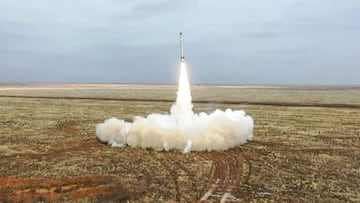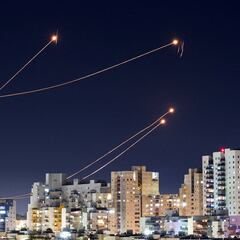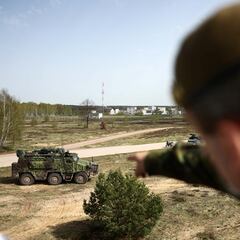Does Iran have nuclear weapons?
After the U.S. bombing of three nuclear facilities in Iran, some kind of response can be expected. This is the military firepower of the Iranians.

The US Air Force dropped two atomic bombs on the cities of Hiroshima and Nagasaki in 1945, killing up to 146,000 people.
While weapons capable of this level of destruction have not been used since, that does not mean nations haven’t continued developing and stockpiling these powerful weapon. The Israeli invasion of Gaza and Lebanon has increased fears of a war with enemy Iran, potentially escalating to a nuclear exchange.
On the evening of Saturday, June 21, President Donald Trump confirmed that the United States had carried out an airstrike on Iran, specifically targeting three nuclear facilities: Fordow, Natanz, and Isfahan, according to several media outlets.
How many nuclear weapons does Iran have?
Iran coming into the possession of a nuclear weapon has been a major concern for the United States and its allies for over a decade. During the Obama administration, steps were taken after it was discovered that Iran had begun enriching uranium. However, Iran maintains that its program is for peaceful purposes, and international inspections haven’t revealed evidence of a weapons program so far. It currently has no nuclear weapons.
In 2015, Iran reached the Joint Comprehensive Plan of Action (JCPOA) with world powers. This deal aimed to limit Iran’s uranium enrichment in exchange for sanctions relief. Under the JCPOA, Iran agreed to:
- Reduce its uranium stockpile significantly.
- Cap uranium enrichment levels well below weapons-grade material.
- Limit centrifuge development for enrichment.
- Allow for international inspections of its nuclear facilities.
In 2018, the US withdrew from the JCPOA under the Trump administration, re-imposing sanctions on Iran. In response, Iran gradually started exceeding the JCPOA’s enrichment limits and expanding its stockpile. Some national security experts called on Presidnet Biden to restart negotiations and sign an agreement with Iran when he took office, but so far, no efforts have been made.
How many nuclear weapons does Israel have?
Israel is widely believed to possess a significant nuclear arsenal, though the exact number of weapons remains uncertain due to the country’s policy of deliberate ambiguity. Estimates of Israel’s nuclear stockpile vary, though it is around 90 nuclear warheads.
The nuclear program is thought to have begun in the late 1950s, with Israel reportedly developing its first deliverable nuclear weapon by 1966 or 1967.
Other nations with a nuclear arsenal
Only a handful of countries possess nuclear weapons. These are:
- Russia
- United States
- China
- France
- United Kingdom
- Pakistan
- India
- Israel (undeclared)
- North Korea (unclear)
There are two main treaties that address preventing the spread of nuclear weapons beyond these nations. The Treaty on the Non-Proliferation of Nuclear Weapons (NPT) is the cornerstone international agreement for nuclear non-proliferation. Established in 1968, it has 191 member states. Only South Sudan, India, Israel, and Pakistan remain outside the treaty.
What would happen if a nuclear bomb dropped in your city? Learn more from leading experts at the upcoming #NukeEXPO.
— ICRC (@ICRC) April 12, 2024
Click here to register 👉 https://t.co/AGQIJxLhzK pic.twitter.com/dFkq5T6aLu
The second is the Treaty on the Prohibition of Nuclear Weapons (TPNW). This newer treaty, adopted in 2017 and entering into force in 2021, takes a more radical stance. It completely outlaws nuclear weapons, prohibiting their development, testing, possession, and use by member states. It has 93 signatories.
Only two nations in history have given up their nuclear arsenal: Ukraine and South Africa.
Related stories
Get your game on! Whether you’re into NFL touchdowns, NBA buzzer-beaters, world-class soccer goals, or MLB home runs, our app has it all.
Dive into live coverage, expert insights, breaking news, exclusive videos, and more – plus, stay updated on the latest in current affairs and entertainment. Download now for all-access coverage, right at your fingertips – anytime, anywhere.


Complete your personal details to comment